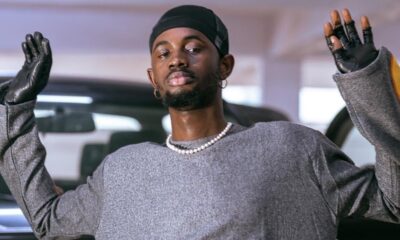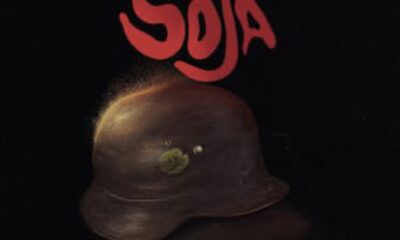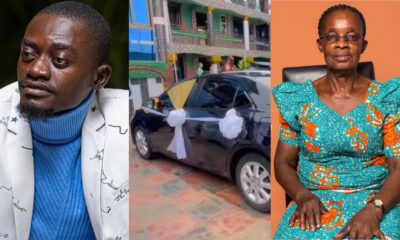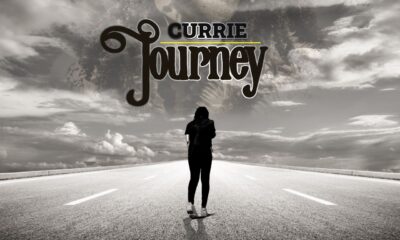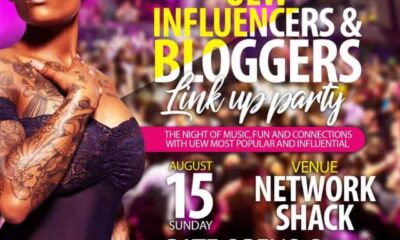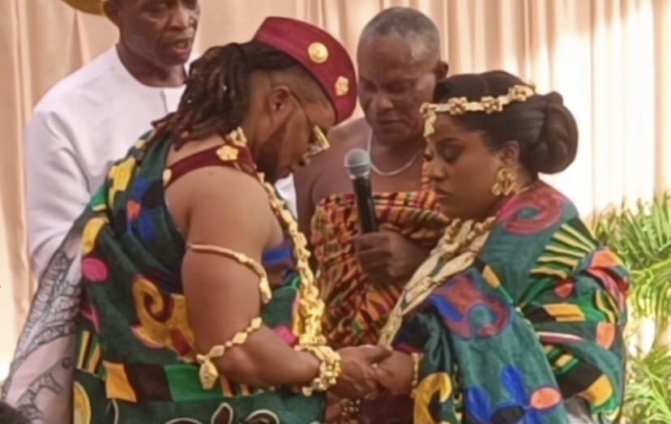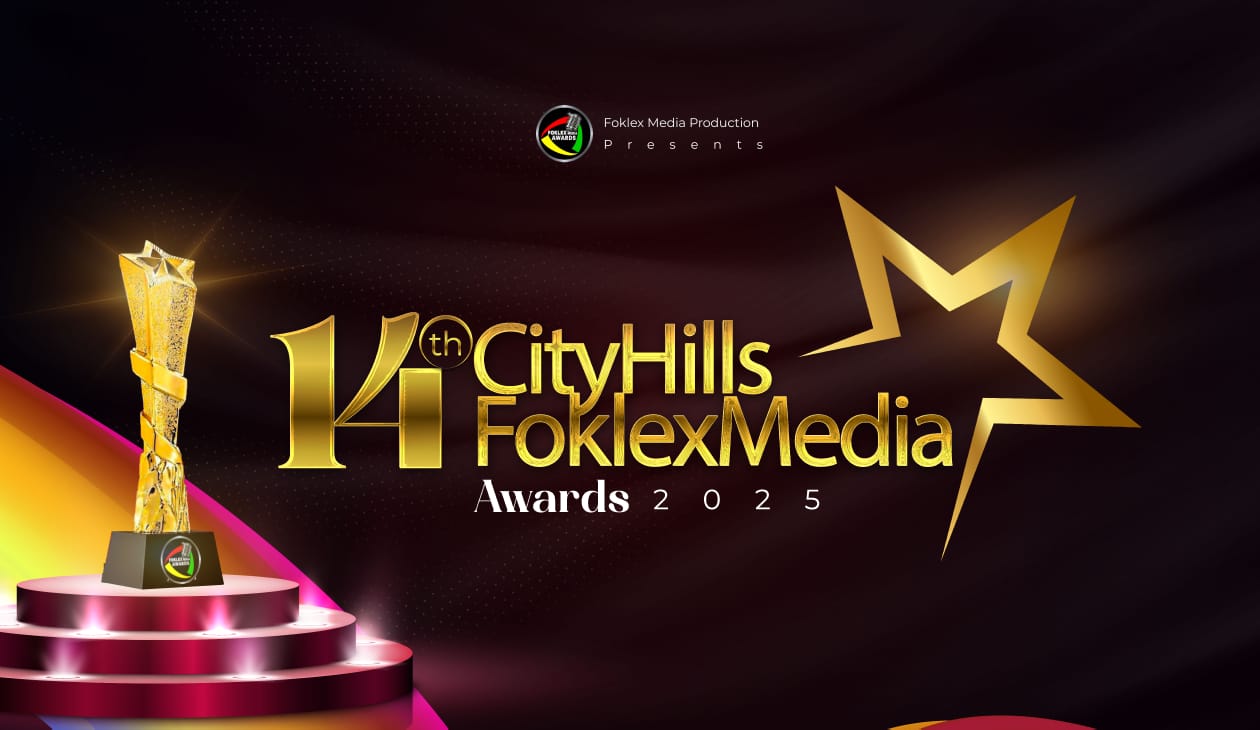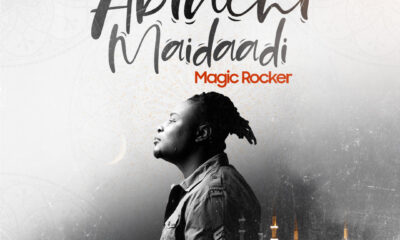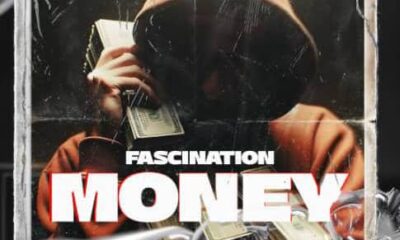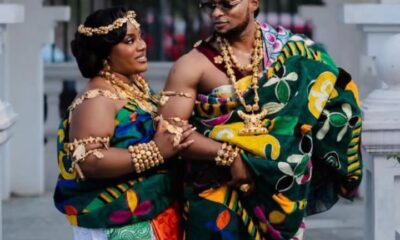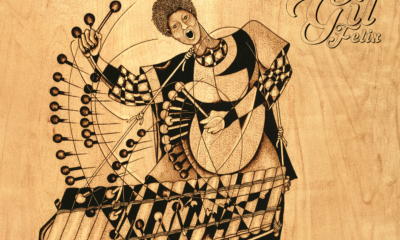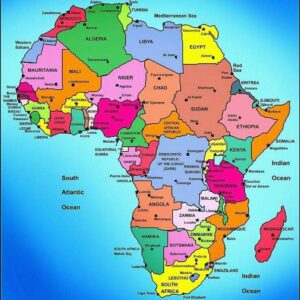 OGA STEVE ABAH, PLAYWRIGHT (Nigeria)
OGA STEVE ABAH, PLAYWRIGHT (Nigeria)
Oga Steve Abah is a tireless, prolific theatre activist whose work focuses on creating dramas based on the everyday lives of ordinary people: poor, powerless, without a channel for learning to cope with the pressures of contemporary life. In his work, he aims for a creative, aesthetic “empowering” theatre practice drawing on masquerade and dance, the existing forms of performance of both peasant society and urban workers. Through this technique, people address the inequalities in their lives and create exquisite dramas in open-air settings all over Africa.
CHINUA ACHEBE, AUTHOR (Nigeria)
The father of the African novel, Achebe made his literary debut in 1958 with the classic Things Fall Apart, which has been translated into 50 languages. It is hard to resist his beguiling style, which infuses standard English with Igbo proverbs and speech patterns. As the founding editor of Heinemann’s African writers series, he was instrumental in introducing the world to much new writing from Africa. Also an essayist, writer of short stories and university professor, he continues to inspire and teach, despite having been paralysed in a car accident in 1990. He could be considered literary godparent to several fledgling novelists (including Chimamanda Ngozi Adichie, the writer of Purple Hibiscus). In 2004, he declined to accept Nigeria’s second-highest honour in protest at the state of affairs in his country. Many believe a Nobel Prize would be a more appropriate honour.
DAVID ADJAYE, ARCHITECT (Tanzania)
The 40-year-old is the head of Adjaye/ Associates, having received his Masters in architecture in 1993 from the Royal College of Art. Based in London, Adjaye has received commissions all over Europe and the United States. His work strives to create a sense of dialogue between the building and its space. He has given lectures around the world and has worked for the BBC, notably hosting a six-part TV series, Dreamspaces, about modern architecture. His company’s designs include the east London projects Elektra House in Whitechapel and Idea Store in Poplar, and the Nobel Peace Center in Oslo.
NEWTON ADUAKA, FILM DIRECTOR (Nigeria)
Born in Ogidi, eastern Nigeria, in 1966, Newton Aduaka moved to Lagos in 1970 and then to England in 1985. After a diploma in video arts and post-production, he studied at the London International Film School, graduating in 1990. He wrote and published short stories while working as a sound mixer on a wide range of productions. In 1997, he set up Granite FilmWorks with Maria Elena L’Abbate to produce cutting-edge, uncompromising films. His debut feature Rage (2000) was released to acclaim, becoming the first independent film by a black film-maker to gain a national release in Britain. It won many festival prizes, including best director at the Pan African Film * * Festival in Los Angeles and the Oumarou Ganda Award at Fespaco, Africa’s biggest film festival. Aduaka has directed commercials and several short films. Funeral (2002) was commissioned for the Cannes Film Festival alongside similarly-themed work from directors such as Walter Salles, Arturo Ripstein and Amos Gitai. The short film Aicha (2004) demonstrates his poetic and visual skills in telling a story.
MAHMOUD AHMED, MUSICIAN (Ethiopia)
Little known outside his native country, Mahmoud Ahmed was born in the Mercato district of Addis Ababa and spent his formative years listening to music by the Imperial Body Guard Band and the famous Ethiopian singer Tlahoun Gessesse, before heading into the capital and shining shoes for a living. He found a job at the Arizona club, one of few “semi-legal” clubs permitted by Emperor Haile Selassie, which became a favourite haunt of the Imperial Body Guard Band, whom he eventually joined before recording in his own right. He was rediscovered by the West through the groundbreaking Ethiopiques series released by Buda Musique in the late 1990s.
AMA ATA AIDOO, PLAYWRIGHT (Ghana)
Ama Ata Aidoo is best known for her play Anowa, a complex tale of a husband and wife’s relationship set against the background of the iniquities of the slavery and the disapproval of her conservative, resentful mother. Initially strong, Anowa eventually succumbs to madness and death as her husband finds himself disempowered by her strength. Aidoo’s work, published in the 1960s, was ahead of its time, pointing to the contradictions and tensions in love and the abuse of power; her husband Kofi employs slave labour in their business, a practice Anowa despises.
AMADOU AND MARIAM, MUSICIANS (Mali)
Success was a long time coming for this talented, award-winning Malian couple who met in 1977 at the Institute for the Blind in Bamako. The guitarist and singer Amadou Bagayoko had served his apprenticeship by playing guitar in legendary band Les Ambassadeurs. After moving to Abidjan, Ivory Coast, in 1986, they recorded a series of cassette-only releases that made them stars in their homeland. These were recently re-released on the French label Because Records (1990-1995: The Best of the African Years). They recorded three successful major-label albums after moving to Paris in the late 1990s before meeting up with Manu Chao, who produced their biggest and (by general agreement) best album so far, Dimanche á Bamako.
AYI KWEI ARMAH, AUTHOR (Ghana)
Born in 1939, and one of only a few Ghanaian novelists who have been published internationally since the 1960s, Ayi Kwei Armah is rather less known but is no less talented than his more widely feted Nigerian contemporaries. Variously based over the years in the United States, Algeria, Paris, Tanzania and Senegal, Armah has gathered a dedicated fan-base who might wish that his output had been somewhat greater than it has been. However, he has also worked as a translator, editor, scriptwriter and teacher. His novel The Beautyful Ones Are Not Yet Born burst on to the scene in 1968, to be followed by others that display his extraordinary way with prose, at once excoriating and spiritual: Two Thousand Seasons (1973), Osiris Rising: A Novel of Africa Past, Present and Future (1995) and The Healers (2000).
LES BALLETS AFRICAINS, DANCERS AND MUSICIANS (Guinea)
The Guinean choreographer Keita Fodeba formed the dance company in Paris in 1952. They successfully toured the world until Guinea’s independence in 1958. On returning to their native country, the company became a national treasure; Les Ballets Africains, affectionately known as “roving ambassadors”, are credited with enlightening their audiences about Guinean culture. The company strives to foster better understanding of Africa and build relationships with other countries. Their lively music is made by drums, flutes and Guinean castanets; audiences enjoy their elaborate costumes, dance and storytelling.
BIYI BANDELE, AUTHOR (Nigeria)
Born in 1967, Bandele is one of the most versatile and prolific of the UK-based Nigerian writers, having turned his hand to theatre, journalism, television, film and radio, as well as the fiction with which he first made his name. His novels, which include The Man Who Came In From the Back of Beyond (1991) and The Street (2000), are rewarding reading, capable of wild surrealism and wit, as well as political engagement, as is all his writing. As a playwright, his ambition is admirable.
SOKARI DOUGLAS CAMP, ARTIST (Nigeria)
Sokari Douglas Camp is one of the first female African artists to have attracted the attention of the European art market. She left her country at the age of 21 to study in Oakland, California and at the London Royal College of Art. Her expressive man-high steel sculptures show her immediate relationship to her home country. She uses masks and ritual clothing as compositional themes in her work, reflecting the political and cultural relationship between Africa and the Western world.
BOYZIE CEKWANA, CHOREOGRAPHER AND DANCER (South Africa)
The choreographer works mainly in South Africa but also presents a lot of work in Europe, mostly in France. Cekwana has taken contemporary dance to the next level in Africa. He is important because he has changed perceptions about dance, particularly in South Africa. Trained in classical ballet, he has found his own way of blending the heritage of his country with his work. He deals with identity and history, fusing politics with the mainstream of art and finding his South African forms within the classical form.
SOULEYMANE CISSE, FILM DIRECTOR (Mali)
Cissé has crafted a body of films that combine visual elegance with Marxist ideology and allegorical storytelling. His best-known film is Yeelen (“Brightness”), a Jury Prize-winner at Cannes in 1987 and one of the great experiences of world cinema. Born in 1940, Cissé began his career as a projectionist and photographer in Mali. After studying cinema in the Soviet Union for seven years, he returned to Mali, where he made newsreels and documentaries. His first fiction film, Cinq jours d’une vie (“Five Days in a Life”, 1972), launched his career and gained attention for the burgeoning African film movement. In 1975, Cissé directed the first feature film in his native language of Bambara, The Girl, only to have the film banned. Drawing on indigenous lifestyles and folklore, Cissé attempts to explore conflicts in Malian society.
LUEEN CONNING, PLAYWRIGHT (South Africa)
In her play A Coloured Place, Conning has produced an exciting piece of writing that explores the contradictions inherent in being “coloured” in post-apartheid South Africa. Using multi-media staging, the play is unrelenting as its barrage of images, perceptions and attitudes spill out on to the stage from bodyless voices.
TSITSI DANGAREMBGA, AUTHOR (Zimbabwe)
When Dangarembga’s first book, Nervous Conditions, won the Commonwealth Writers Prize for Fiction in 1989, Doris Lessing wrote: “Many good novels written by men have come out of Africa, but few but black women. This is the novel we have been waiting for… it will become a classic.” It was read by millions, and was among the top 12 titles in the project to identify Africa’s 100 best books of the 20th century. The follow-up has been long coming (Dangaremgba turned her attention to film), but The Book of Not, just published by Ayebia Clarke Publishing, was worth the wait; it’s a powerful story spanning the period from minority rule to the emergence of independent Zimbabwe.
TOUMANI DIABATE, MUSICIAN (Mali)
Perhaps the best-known kora player in the world, the Malian star Toumani Diabaté has released a string of albums alongside the likes of Ballake Sissoko (New Ancient Strings) and the late, great Ali Farke Touré (In the Heart of the Moon). Refusing to be pigeonholed, he’s worked with the blues legend Taj Mahal and Spanish superstars Ketama, and is always willing to mix various styles with his Malian roots. This year saw the release of the critically acclaimed Boulevard de l’Independance with his band Symmetric Orchestra. Recorded at the same time as In the Heart of the Moon, it showcases the diversity of his playing.
DILOMPRIZULIKE, ARTIST (Nigeria)
Dilomprizulike, the self-proclaimed “junk man of Africa”, is among the most enigmatic of artists. Dilom creates sculpture and performances tied deeply into traditional African masquerade, yet which are informed by a post-modern awareness. Dilom is the art. He lives in what seems to be a junkyard in a permanent performance, recycling the detritus of Lagos into artwork, clothes, a home and a way of life that questions much of what we take for granted. Yet the work wrought from rubbish is deeply beautiful, intriguing and has a real gravitas; he is a philosophical Gaudi for the 21st century.
CESARIA EVORA, SINGER (Cape Verde)
This Grammy-winning singer hails from the port town of Mindelo, on Sao Vincente. She possesses one of the most powerful and alluring voices in the world, helped by a bitter-sweet style of singing called morna, a descendent of Portuguese fado, sung in Creole-Portuguese. Ostensibly a folk singer (although the style is known as Cape Verdean blues), she’s accompanied by guitar, accordion, violin, cavaquinho (a small four-string guitar) and clarinet, and often sings of isolation, love and slavery.
SAMUEL FOSSO, PHOTOGRAPHER (Cameroon)
Samuel Fosso is a prolific and witty photographer, whose colourful and outlandish portraits range from African chiefs to American women. But they all have one thing in common; on close inspection, they can be seen to be self-portraits. His explorations of identity have featured in the Guggenheim in New York and the Photographers’ Gallery in London.
FLORA GOMES, FILM DIRECTOR (Guinea-Bissau)
Gomes is the only film-maker to emerge from Guinea-Bissau, a former Portuguese colony in West Africa. He attended a course in cinematography at the Institute of Cuban Art in Havana under the legendary Santiago Alvarez and qualified as a cameraman and director of photography in 1972. Gomes started working for television with the late Senegalese film-maker Paulin Vieyra. In 1973, he made his first news film about the second congress of PAIGC (African Party for the Independence of Portuguese Guinea and Cape Verde). In 1983, he made Mortu Nega, the first full-length film produced in Guinea-Bissau, a remarkable tale of love during the liberation and the struggles of independence.
PIERRE ATEPA GOUDIABY, ARCHITECT (Senegal)
Through the African Scholarship Program, Goudiaby took a degree in architecture from the Rensselaer Polytechnic Institute in New York in 1973. Born in the village of Baila, his humble beginnings are a thing of the past; he is now among Africa’s most respected and successful architects. His company, Atepa Group, is responsible for some of the most innovative and modern buildings in Senegal. His West Africa Central Bank in Dakar is modelled on the baobab tree. Elders in his culture gather round this sacred tree and have discussions. In 2003, the Africa-America Institute awarded Goudiaby the Special Recognition Award for Architecture and Business Enterprise in Africa.
MAHAMAT SALEH HAROUN, FILM DIRECTOR (Chad)
Born in N’Djamena in 1961, Haroun was forced to leave his home country at the start of the 1980s because of civil war, fleeing to Cameroon and later Paris. He studied in France – film, then journalism – and worked for five years as a reporter before directing his first short film in 1994. Among his early shorts are Maral Tanie (1994) and Goi-Goi, le nain (1995). His first documentary, Bord d’Africa (1995), focuses on African musicians living in Bordeaux. The second, Sotgui Kouyaté, un griot modern (1996), tells the story of a griot from Burkina Faso. The film explores the life of the famous griot in the different worlds of Africa and Europe. Haroun provides a new language and aesthetic for African cinema. Bye Bye Africa (1999) was the first film of its kind to be produced entirely in Chad; it’s a “documentary fiction”, a story about making a documentary in which he himself plays an exiled African film-maker. His latest film is Daratt (“Dry Season”).
DELIA JARRETT-MACAULEY, AUTHOR (Sierra Leone)
Drawing on her Sierra Leonian background for an uplifting story about a child soldier, Moses, Citizen & Me (2005), Jarrett-Macauley’s confident first novel did not enjoy the sort of hype that greeted, say, Helen Oyayemi. But a measure of her accomplishment in dealing with sensitivity, humour and empathy with disturbing material is that the novel won the George Orwell Prize for political writing. Already the author of The Life of Una Marson, 1905-65, a biography of the first black programme-maker at the BBC, Jarrett-Macauley exemplifies the African diasporic talent that has continued to invigorate mainstream English literature.
SALIF KEITA, MUSICIAN (Mali)
One of the founders of Afro-pop, Keita was born in Mali in 1949 to a noble family. He was born an albino, which led his mother to hide him for fear of reprisals from superstitious neighbours. His decision to become a singer met with hostility from his family because it was seen as an occupation beneath his noble standing. He stuck to his guns and left his village for the capital Bamako aged 18. He later played with the Rail Band and Les Ambassadeurs before becoming a solo artist, recording such classics as Soro and the Grammy-nominated Amen.
KHALED, MUSICIAN (Algeria)
Possibly the most famous Algerian rai singer of all time, Khaled is one of the few North African artists to have won wide acclaim, particularly in his adopted home of France, where his singles “Aicha” and “Didi” flew to the top of the charts. Born Khaled Hadj Brahim in Sidi-El-Houri in 1960, he left school at 16 to record his first single. Influenced by Arabic, Spanish and French music, as well as The Beatles and James Brown, his sound soon typified rai’s smooth synth-pop output of the Eighties. Moving to France in 1986, he recorded a string of successful albums such as Kenza and Sahra before going back to his roots with his latest, Ya-Rayi.
ABDOULAYE KONATE, ARTIST (Mali)
The contemporary artist, 53, began his career as a graphic designer at the Musée National in Bamako and went on to be appointed director of the Palais de la Culture. In 2002, he received two awards: the Chevalier d’Ordre National du Mali and Chevalier de l’Ordre des Arts et des Lettres de France. Having started as a painter, his style has evolved into multi-medium and large installation work. His political, social and environmental views are expressed through his art. Recently, his work has depicted the devastating effects of Aids on society and individuals.
KONONO NO 1, MUSICIANS (Congo)
Konono No 1 are a unique musical collective from Kinshasa. They use percussion instruments salvaged from junkyards, and combine electric likembé (a thumb piano) with percussion and voices, filtered though a PA system that consists of a microphone carved out of wood, fitted with a magnet from a car alternator and an oversized horn-shaped amp. The cacophony is unforgettable.
Likembé player Mawangu Mingiedi is the leader of the band. A former truck driver, now in his seventies, he adapts trance-inducing zombo ritual music (from his homeland near the Angolan border), as heard on the band’s critically acclaimed album Congotronics.
FEMI KUTI, MUSICIAN (Nigeria)
He’ll never quite escape the shadow of his father (the Afro-beat legend Fela Kuti), but Femi Anikulapo Kuti has done a creditable job of emulating his father’s work, albeit in a much cleaner (and less risqué) way. Kuti was born in London in 1962, but grew up in Nigeria’s former capital, Lagos. He quickly adapted to his new musical and politically active surroundings, learning various instruments as well as singing. He put this education to good use on a series of albums with his band Positive Force. He headlines the African Soul Rebels Tour next year.
FAUSTIN LINYEKULA, CHOREOGRAPHER AND DANCER (Congo)
Born in Ubunvu in north-east Congo, Faustin Linyekula doesn’t conform to any form or structure or place. He’s inspired by nothing and creates something out of it. Coming from Congo, he’s always worked under very difficult circumstances, but for him these circumstances have become a form of inspiration. After eight years in self-imposed exile (1993-2001), Linyekula returned to his homeland with a renewed desire to create art there and established a company, Les Studios Kabako, in Kinshasa. His work can best be described as experimental performance art, using text and theatre to examine the links between art and society and issues of identity.
VINCENT MANTSOE, CHOREOGRAPHER AND DANCER (South Africa)
Vincent Mantsoe grew up dancing in the township of Soweto, and trained at the Moving Into Dance school in Johannesburg. He is the pioneer of Afro-fusion – a blend of African aesthetics and traditions with European forms – bringing it to the world stage. His work draws on traditional African dance, the song and dance rituals of the sangomas (traditional healers) as well as modern, ballet and Asian forms.
ZOLA MASEKO, FILM DIRECTOR (South Africa)
During apartheid, the handful of South Africa’s black film-makers were either unable to work in their country or were in exile. The end of apartheid provided opportunities to make films that were in synch with their history and realities. Maseko became the first South African to win the Etalon de Yennega, Africa’s leading prize for fiction film, at Fespaco (2005) with his biopic Drum on the life and death of the journalist Henry Nxumalo. Maseko was born in exile in 1967 and educated in Swaziland and Tanzania. He studied at the National Film School at Beaconsfield, England. He also directed an 11-part series for the South African Broadcasting Corporation entitled In Search of Our History. The capturing of popular memory lies at the heart of his work.
SOUAD MASSI, SINGER (Algeria)
This talented singer/songwriter fled her homeland after being hounded out by Islamic fundamentalists who took exception to her promotion of independence for young women. She ended up in Paris, where she started to create her own unique blend of folk, rock, flamenco and shaabi (Arabic street pop), releasing her acclaimed debut album Raoui (“Storyteller”) in 2001. She’s toured prolifically for the past few years, and won a Planet Award at the 2006 BBC world music awards. She is defiantly outspoken about the problems in Algeria: “Remaining silent would mean that terrorists have won and that all the intellectuals they murdered died for nothing,” she says.
YOUSSOU N’DOUR, MUSICIAN (Senegal)
Perhaps the best-known African singer of all, most people remember N’Dour for his hit “7 Seconds” with Neneh Cherry, but there is much more to him. With his band Super Etoile de Dakar, he changed the face * * of Senegalese music with a radical form of energetic, polyrhythmic music called mbalax, which spread across West Africa like wildfire. He’s become a figurehead for Africa, campaigning for Aids awareness and speaking against corruption and genocide. His finest albums remain Immigrés and the Grammy-winning Egypt, a devotional album in praise of Islamic sages.
KETTLY NOEL, CHOREOGRAPHER AND DANCER (Haiti/Mali)
Kettly Noël, from Port au Prince, Haiti, began dancing seriously at the age of 17. In 1996, she moved to Benin, where she began giving training in contemporary dance to local youngsters, many of whom went on to become members of the Benin National Ballet. At the end of 1999, Noël relocated to Mali, with the intention of starting a similar project there. She’s a female choreographer who deals with women’s issues in Africa. Her work deals with identity and the fight for the position of women in the continent. She confronts issues other people are not willing to go near in their work. She likes to go deeply into dark areas in search of light.
IDRISSA OUEDRAOGO, FILM-MAKER (Upper Volta/Burkina Faso)
Born in Banfora in 1954, Ouedraogo’s early knowledge of film came from the travelling cinemas that visited villages. He made his mark at the Cannes Film Festival with his 1990 film Tilai, which won the Jury Prize. His 1989 film Yaaba about a 10-year-old boy who befriended an older woman remains an international success. Having studied film in Paris, his style is dubbed “Francophone African cinema”. His films are known for their visual charm and the attention he pays to the composition of each scene.
TRACEY ROSE, ARTIST (South Africa)
Tracey Rose makes Tracey Emin look like a Girl Guide. Rose is a mixed-race feminist who uses identity and sexual politics as incendiary devices, waging war on her fellow South Africans’ sensibilities with almost narrative-less performances, films and artworks. It is hard to resist the crazy world she weaves, a car crash of popular culture and extreme sociology, so assuredly absurd that it has a kind of convincing intoxication that pulls you in. Even against a backdrop of the extremes of her home town Johannesburg, she is wild, seeming to weave a visual poetry across the polarities of South Africa’s political landscape that can make you laugh, yet feel guilty for your collusion.
IBRAHIM EL SALAHI, ARTIST (Sudan)
It is difficult not to fall in love with the deeply serene El Salahi, the godfather of African modernism. He has created great work over five decades, has had as many chapters to his practice as Picasso, and has generated his own personal art-history. There’s a story that when he worked as the Sudanese cultural minister in the Seventies he was imprisoned for six months, accused by the military dictator of anti-government activities. In prison, he asked the guard for paper and pencils. The guard laughed: “You’re not in New York now!” Salahi managed to beg and steal the means to paint and draw, under threat of being beaten or worse. His work helps one to see why someone might be driven to take such risks.
OUSMANE SEMBENE, FILM-MAKER (Senegal)
Sembène is the “father” of African cinema. Best known for his historical-political works with strong social comment, Sembène was born in Senegal in 1923. He left school at 15 and worked as a plumber, bricklayer and apprentice mechanic. In 1944, he was called up to active duty to liberate France and was subsequently sent to the colony of Niger. After his discharge he took part in the Dakar-Niger railroad strike, which inspired his book Les bouts de bois de Dieu (“God’s Bits of Wood”) (1960). In 1948, Sembène went back to France, worked in Marseilles docks, became a trade union activist and joined the French Communist Party. In 1956, his first book Le docker noir (“The Black Docker”) was published. Sembène began to realise the greater potential of cinema for a largely illiterate mass audience. He went to Moscow to study under Mark Donskoj at the Gorky Studios). His short film Borom Sarret (1963) is the cornerstone on which African cinema has been built.
ABDERRAHMANE SISSAKO, FILM DIRECTOR (Mauritania/Mali)
Sissako is the most distinguished and inventive film-maker working in Africa today. Born in Kiffa, Mauritania, in 1961 and raised in Mali, his father’s homeland, he returned to Mauritania in 1980. The difficulties of adjustment encouraged him to turn to literature and film. A study grant allowed him to attend the Institute of the University of Moscow. Le Jeu (1990), first presented as a graduation assignment, won the best short prize at the Giornate del Cinema Africano of Perugia in 1991. In 1993, Octobre was shown at Locarno and won prizes the world over. Waiting for Happiness was screened at Cannes 2002 and won best film in the Un Certain Regard section. It was shown at the New York Film Festival in 2002 and won the Grand Prize at Fespaco in 2003. His latest film Bamako, in which Western financial institutions are put on trial by African civil society, had its premiere in Cannes in May this year and its UK premiere at the London Film Festival last month.
WOLE SOYINKA, DRAMATIST, NOVELIST, POET (Nigeria)
Soyinka is an iconic figure who, in 1986, became the first black (and first African) Nobel laureate. Outspoken against government oppression in his native Nigeria (like his cousin Fela Kuti), his writing career over 40 years has encompassed prison, exile and a death sentence for treason. He is the best-known playwright from the continent. His plays include Death and the King’s Horseman, an exploration of morality, human weakness and pomposity within the performance of sacrificial rituals. Some of his most important writing is as an autobiographer, such as his 1970s prison memoir The Man Died and Aké: A Childhood Memoir. As a novelist he is less accessible.
RACHID TAHA, MUSICIAN (Algeria)
Taha is the perfect foil to the sugary love songs sung by many modern rai artists. His music emulates the guttural, promiscuous and socially satirical rural rai style typified by the late great Cheikha Remitti, and also the shaabi singer Dahmane El Harrachi, whose song “Ya Rayah” he covered for his biggest hit. Taha started out in the French rock band Carte De Séjour, where his politically charged lyrics took shape. A string of solo albums followed, bursting with traditional Algerian rhythms and a healthy punk-rock attitude. His best-loved album Diwan, covering classic Algerian songs, was recently followed up with Diwan 2.
NGUGI WA THIONG’O, AUTHOR (Kenya)
Exiled from Kenya for 22 years because of his highly political work (including the best-selling novel Petals of Blood), one of Africa’s greatest and most highly respected writers has just returned to attention with his first novel in 20 years, Wizard of the Crow, a magisterial, acerbic milestone work set in a fictional modern African state.
TINARIWEN, MUSICIANS (Mali)
Formed in 1982 in Muammar Gaddafi’s Tuareg rebel camps, this celebrated Tuareg blues band gave up guns for guitars, singing in French and Tamashek and playing a style of music called tishmoumaren (“music of the unemployed”). Their creative heart is the vocalist and guitarist Ibrahim Ag Alhabib, who can strike a mean Chuck Berry riff. The band’s first album, The Radio Tisdas Sessions, recorded in 2000, was followed by Amassakoul (“Traveller”) in 2004. Their third album Aman Iman: Water Is Life is released in January on Independiente.
ROKIA TRAORE, MUSICIAN (Mali)
One of the most distinctive new voices of Mali, and a tremendous live performer, Rokia Traoré came to UK attention at Womad in 2000. Although not a griot, her family encouraged her to sing at weddings, though her father was a wealthy diplomat and such things were frowned upon. While studying in France she sang with a rap group, and this led her to begin writing songs. She was discovered on the French festival circuit, and in 1997 became a protégé of Ali Farka Touré, who persuaded her to record her first album Mouneissa. A series of critically acclaimed albums have followed.
BINYAVANGA WAINANA, AUTHOR (Kenya)
Born in Kenya, but with an imagination that transcends borders and cultures, Wainana won the Caine Prize for African Writing (the “African Booker”) in 2002. His Granta-published essay, “How To Write About Africa”, brilliantly satirising the clichés and stereotypes that can ensnare non-African writers, will make any but the guilty laugh out loud. As founder of the journal Kwani? he nurtures new writers, including Yvonne Adhiambo Owuor, the 2004 Caine winner.
ZOLA, MUSICIAN (South Africa)
Born in Soweto, Bonginkosi Dlamini, known as Zola, is one of the most famous singers of kwaito (a form of dance music pitched somewhere between house and hip-hop). He performed the score and appeared in the Oscar-winning film Tsotsi. His father abandoned his mother and their three children in one of the roughest and most notorious areas, where unemployment, violence, alcoholism and drugs were rife. This helped him prepare for his role as the gangster Papa Action in Yizo Yizo 2. His music reflects his tough upbringing.
ATHOL FUGARD, PLAYWRIGHT (South Africa)
Fugard has written benchmark plays, statement plays and wonderful pieces that introduced us to the township. He was responsible for making a lot of people focus on South Africa in a theatrical context. The Road to Mecca affected the political thinking of everyone who saw it. The truthfulness of his writing strikes painfully at the heart. What he has to say makes him an international writer but, first and foremost, it convinces us that he is a great and good man.
K’NAAN, RAPPER (Somalia)
A relative newcomer, this Somali rapper made a name in hip hop and world music circles with his inventive 2006 album The Dusty Foot Philosopher. Born in 1978, his spent his formative years trying to avoid Somalia’s civil war and listening to hip-hop records sent to him by his father, who was working as a taxi driver in New York. At 13 he moved with his siblings to Harlem, and then on to Rexdale, Ontario, where he became part of a large Somali community and started rapping. A rapid rise ensued, including performing at the 50th anniversary of the UN High Commissioner for Refugees in 2001, and contributing to Youssou N’Dour’s album Building Bridges.
OUMOU SY, FASHION DESIGNER (Senegal)
The Senegalese designer is known as “Queen of Couture”. Her bold avant-garde and Afrocentric fashions are her signature style, with a touch of Western glamour. The 55-year-old Sy is a Renaissance woman, she founded the Dakar Carnival and International Fashion Week and is also a teacher. Elaborate headdresses, vibrant colours, baskets, and even adorning CDs are her trademarks. She has pride for her culture and designs for the modern African woman, who has a bit of a fun side to her.
Source:https://www.independent.co.uk/news/world/africa/art-of-africa-the-50-best-african-artists-426441.html
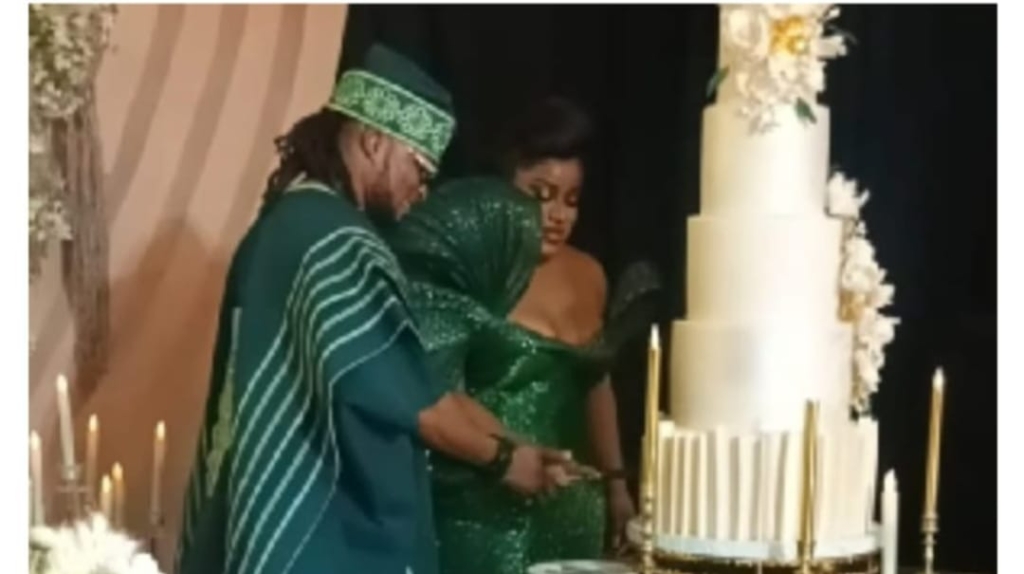
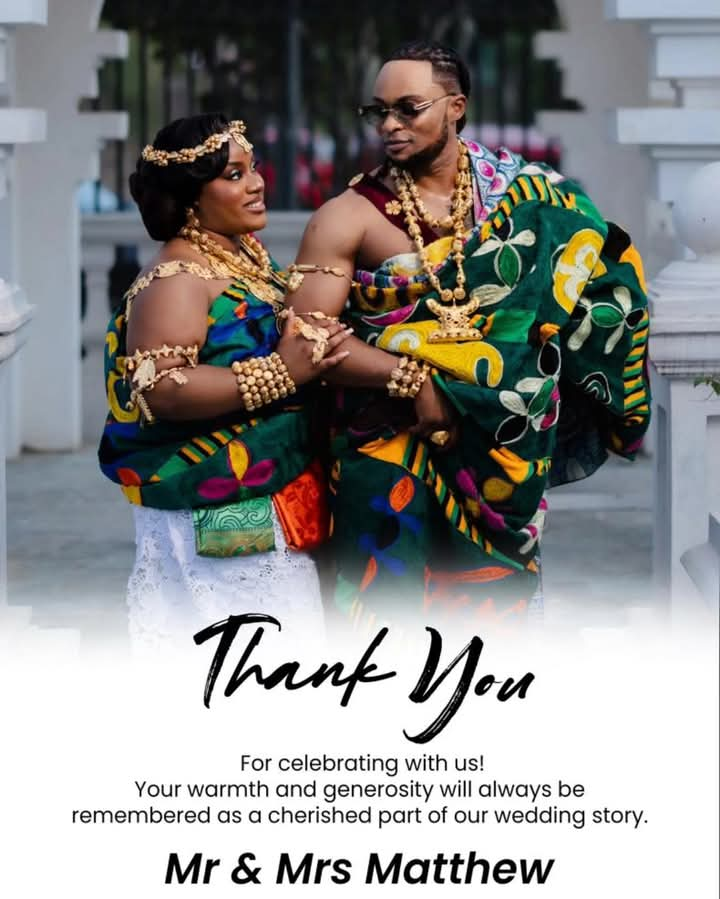

 OGA STEVE ABAH, PLAYWRIGHT (Nigeria)
OGA STEVE ABAH, PLAYWRIGHT (Nigeria)